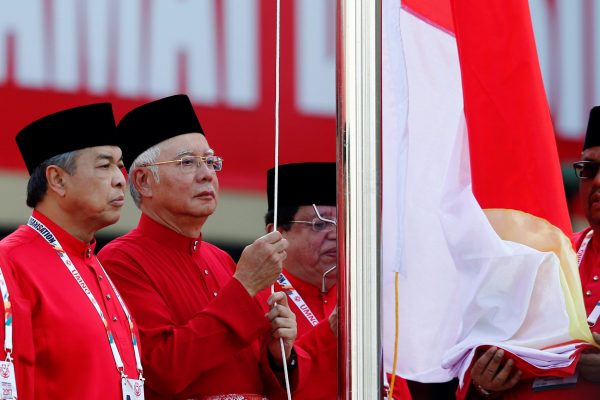This has been especially true following the reincarnation of Mahathir Mohamad as the leader of the Pakatan Harapan opposition coalition and the unprecedented changes to the country’s party system. The pending election has also renewed focus on contentious political issues like the ongoing re-delineation of electoral districts and the systematic manipulation of the electoral process, which are both certain to impact the election’s outcome.
A clear commonality in these discussions is the overwhelming focus on federal-level politics. To someone unfamiliar with Malaysia’s political history, this may seem surprising in light of the country’s formal institutional structure, which theoretically involves significant decentralisation to state and local levels. The systematically constructed Regional Authority Index, for example, which captures the formal authority of sub-national governments, ranks Malaysia as the most decentralised country in Southeast Asia ahead of countries like Indonesia and the Philippines. Given this, why does the federal level so substantially overshadow sub-national politics in Malaysia?
There is a simple answer to why this has occurred: the UMNO-led government has been systematically hollowing out sub-national government autonomy in Malaysia for decades. While this process has been a consistent feature of the country’s post-independence years, it accelerated during Mahathir Mohamad’s tenure as prime minister and has advanced further under Najib Razak. The result is that Malaysia now functions as a highly centralised polity in practice. This has important implications for contemporary politics in the country and its broader development.
The gradual usurping of resources and competencies by the federal government is driven by its efforts to consolidate power in UMNO’s inner core. Undermining sub-national autonomy not only insulates against opposition challengers but also protects the party’s inner core from intra-party challengers.
Why does this matter for Malaysia’s contemporary politics? The overwhelming beneficiary of centralisation — especially over the past three decades — has been the Prime Minister’s Department. A variety of new agencies, programs and statutory bodies are housed within the Department and thereby bypass the numerous institutional constraints that faced Malaysia’s early post-independence leadership. These institutions have substantially increased the prime minister’s capacity to directly shape Malaysia’s economic, social and political development. With the stakes for the control of the Department perpetually growing, Prime Minister Najib Razak and other UMNO elites have been willing to take greater risks to ensure the continuity of their power.
Despite being constrained by diminishing autonomy and dwindling budgets, sub-national politics has not lost all relevance: securing control of state- and local-level governments has improved the quality of the opposition. The opposition is able to accrue meaningful governing experience rather than being perpetually relegated to observer status, as is the case in most other single party-dominant systems. This has given the opposition an opportunity to demonstrate alternative governance models to the electorate and has expanded the platform for policy experimentation. Independent of the normative value of more pluralistic politics, this nascent form of inter-state policy competition has animated political debates in Malaysia and produced some positive spillovers for governance in general.
Ultimately, much is at stake in the relationship between the federal and sub-national governments. Perceptions of federal overreach have fuelled local resentment in some areas, which has in turn spawned identity-based movements that challenge core principles of the contemporary Malaysian identity.
In significant opposition strongholds like Penang and Selangor, federal overreach has deepened the cleavage between the ruling UMNO-led coalition and the population. This hinders political reconciliation and alienates substantial segments of the electorate. Just as importantly, if the theoretical benefits promised by decentralisation are taken seriously, then returning some autonomy to local tiers of government may provide a much-needed boost to help Malaysia escape the middle income trap, which has proven resistant to other efforts.
As Najib has given no indication of reversing or even slowing the centralisation trend, a fundamental departure from the status quo is unlikely should UMNO and its allies prevail in the 2018 general election. With Mahathir Mohamad — under whom the consolidation of power in the Prime Minister’s Department gained momentum — at the helm of the opposition coalition, it is unclear whether even Malaysia’s first post-independence change in government would precipitate real change on this front.
Kai Ostwald is an assistant professor in the School of Public Policy & Global Affairs and the Department of Political Science at the University of British Columbia.
This commentary is based on ‘Federalism Without Decentralization: Power Consolidation in Malaysia’, which was published in the Journal of Southeast Asian Economies.

